Lifestyle
COVID Scar Tissue: Exploring Life Post Pandemic
Published
5 years agoon
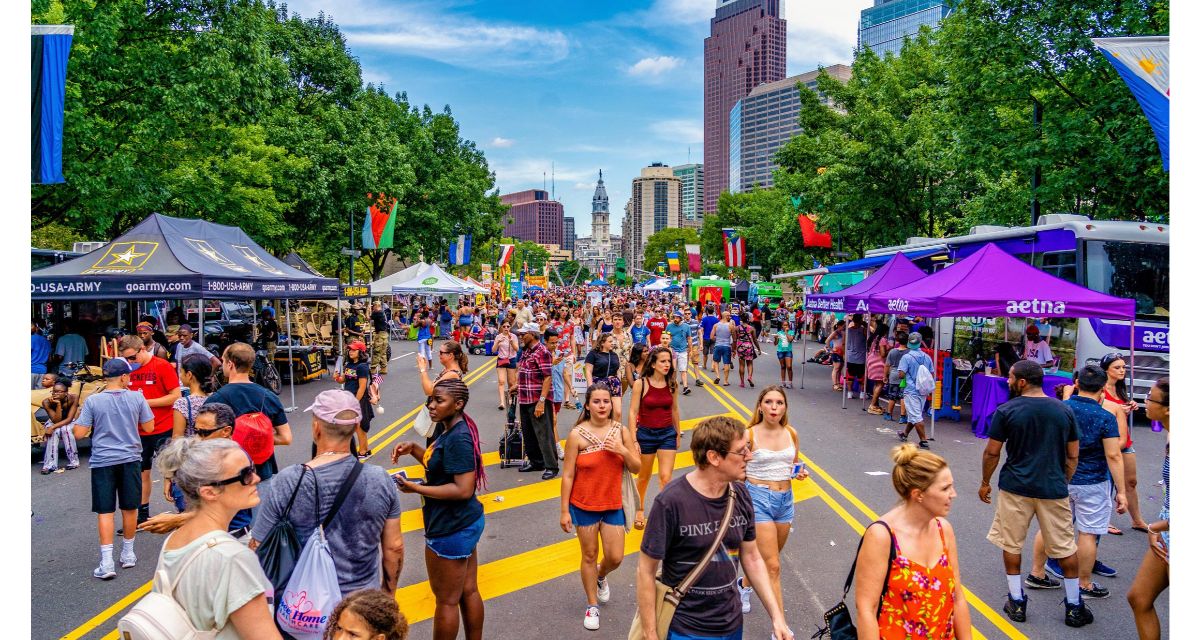
It’s the question every household fantasizes about these days: what will you do after COVID 19 is in the rearview? Friends are anxious to get reacquainted. Sports fans cannot wait to go to a baseball game. Some can’t wait to book a trip somewhere far away. It is fun to think of, for sure. But the more you think about that question, the more you must consider what life will truly be like on the other side of this pandemic.
Will there be sold-out concerts with thousands in attendance?
Will you want a big 4th of July party?
Experts say the ripples of COVID 19 will be felt long after the pandemic is over, suggesting that we will, in fact, be looking at a new normal.
The Great Depression was a defining moment in American history. Children born around this time would live to see America at its most prosperous. Like every other home on the block, their homes would eventually have televisions and microwaves – a car in every driveway. Traveling cross country and overseas was easier and cheaper than ever before. But still, they grew up knowing the value of a dollar. These children would grow up to be the grandparents who give ‘a shiny quarter’ to their eye-rolling grandkids. This was because they remembered a time when things weren’t so good.
In the same way, the COVID-19 pandemic will be the defining moment of this generation. Its effects still haven’t been fully realized, but they are seeping through our daily lives.
Did it feel strange to you when you last saw a large crowd in a movie or tv show?
Wave Goodbye to the Handshake
Many have surmised that the handshake should have gone out the door a long time ago. In a paper published in 2014, Dr. Mark Sklansky cites that the risks of spreading pathogens should supersede the urge to shake hands. His paper specifically dismantles the efficacy of handshaking between doctors and patients but speaks more broadly. “Hands are warm and wet, and we know they transmit disease very well,” says Sklansky. “They’re a phenomenal vector for disease.”
“I don’t think we should ever shake hands again, to be honest with you,” Dr. Anthony Fauci.
The world after COVID may be one without social touching. Hugs, high fives, and pats on the back could be met with a cringe, but this could lead to further effects. Why do people shake hands and touch people in the first place?
Like speaking, body connection is a form of language dating back thousands of years. It’s an evolutionary practice, even seen in other primates. “We know that nonhuman primates use social touch a lot through grooming,” says Juulia Suvilehto, a researcher at Linköping University in Sweden. “It’s a way of making allies and maintaining relationships.

Tiffany Field is the director of touch research at the University of Miami School of Medicine. She explains that touch also reduces aggression. “When you’re touching someone, it’s very hard to be aggressive towards them.” Field explains results from a study in which they separated monkeys between a wall of plexiglass. “If you separate two monkeys and they can see, hear, and smell each other, but they can’t touch each other, once you remove the plexiglass, they practically kill each other.” What does this mean for the future of human interaction? For one thing, that awkward moment when you shake someone’s hand who offers a fist bump may be replaced by someone not knowing how to refuse a handshake politely.
More Prepared… Maybe
Software engineer turned philanthropist Bill Gates has been heavily involved in the COVID conversation. He suggests that our society will be more prepared for the next big disaster coming down the pike. “We’ll have practiced,” Gates said on the first episode of his new podcast, Bill Gates and Rashida Jones Ask Big Questions. “We’ll have done disease games like war games, and almost every country will respond like South Korea, or Australia did where you’re very quickly testing people and quarantining people. And our tools will be much better.” Much like the grandmother who saves her quarters, we’ll be ready if something similar comes back. But there’s another side to that quarter.
Katherine Hirschfeld, a medical anthropologist at the University of Oklahoma isn’t so optimistic. According to Hirschfeld, an increase in misinformation could lead to further political divide and future outbreaks. We will likely see “increased political division and economic inequality in the United States and elsewhere, with the basic science of epidemiology and public health attacked and undermined by conspiracy theories spread on social media,” she explains. “If this sounds unusually grim, it may be due to my years of research exploring post-Soviet conflicts, when many multicultural countries fell apart in warring factions that triggered epidemics of easily preventable diseases.” Grim indeed.
It’s Not All Bad
Society has taken measures to adapt during COVID that may have some positive lasting results. More businesses than ever are benefiting from a work-from-home model. A Gartner survey reported that 80% of the company leaders they polled plan to allow their employees to continue to work at least part-time remotely. Why? Because it’s good for business. According to Global Workplace Analytics, 94% of surveyed employers report has been the same or higher since allowing remote work.
The effects ripple on. With more remote work comes fewer cars on the road. Fewer cars mean less traffic and fewer carbon emissions. According to nature.com, after rising for decades, global carbon dioxide emissions dropped 6.4% during the pandemic. The United States wins the award for most improved with a 13% decrease. The average American household has 1.88 vehicles as of last year. Could a world without everyone commuting to work mean less of a need for multi-car homes?

Bill Gates is thinking even bigger. If companies aren’t making their employees come into the office, it won’t matter where they are headquartered. The draw of the big cities will have less of a pull. Employees won’t feel the need to stay close. “In the cities that are very successful… even for a person who’s well paid, they’re spending an insane amount of their money on rent.” This could be no more.
Education Made Accessible
Among the employees working from home, teachers are also finding their footing in a changing landscape. And so are the students. The COVID lockdowns have been inconsistent and seemingly unpredictable in the last year. A student in Virginia had a very different go of it than a student in California. Schools across the country have endured some combination of class cancellations, remote learning, and learning on-premise. But while the education system has struggled to get its footing, some are seeing the silver lining.
Anna Mueller, a sociologist at Indiana University Bloomington, speaks about the upside. “The pandemic has shown us how online teaching can be a tool that makes the classroom more accessible, particularly for students with disabilities. In the past, I’ve had students who sometimes struggled to attend class because they were coping with anxiety or living with significant pain. They needed my empathy and flexibility with class attendance but still missed the classroom experience. I now realize how easy it is to turn on a camera and pop on a microphone so they can join from the comfort of their homes.”
Mario Luis Small is a sociologist at Harvard. He suggests that secondary education may be in store for a radical makeover. “COVID-19 has shown that a lot, though by no means all, of higher instruction can happen online. Parents and students will likely ask how much of the on-campus experience is truly needed and demand alternatives.”
A New Kind of Sport
In the months after the pandemic has dissipated, there will no doubt a surge in attendance at concerts in sporting events. Those who associate summer days with hot dogs and baseball and cold Sundays with tailgating a football game are anxious to spend too much money on a beer at a game. But while these traditional sports are awaiting a resurgence, another kind of sport has been getting bigger and bigger.

Esports have boomed during the pandemic. Video gaming enthusiasts have gathered online to watch the pros play video games like Call of Duty, Overwatch, Minecraft, and thousands of more games. Viewership skyrocketed during the pandemic. StreamHatchet reports a jump in esports from 4.8 billion hours viewed in the first quarter of 2020 to 7.6 billion. Philadelphia is currently building a $50 million esports arena right next to all of their other major sports venues. It seems esports are here to stay.
Turning the Page
While everyone is excited for this chapter of society to be over, no one truly knows what to expect. What will vacations be like? What about birthday parties? Things may never truly be the same. But while some muscles may atrophy, others will strengthen. Will we see a bigger emphasis on family life as we all spend more time at home? Maybe the creativity world gets a spark as more people rely on their own faculties to entertain themselves. As the saying goes, only time will tell.
You may like
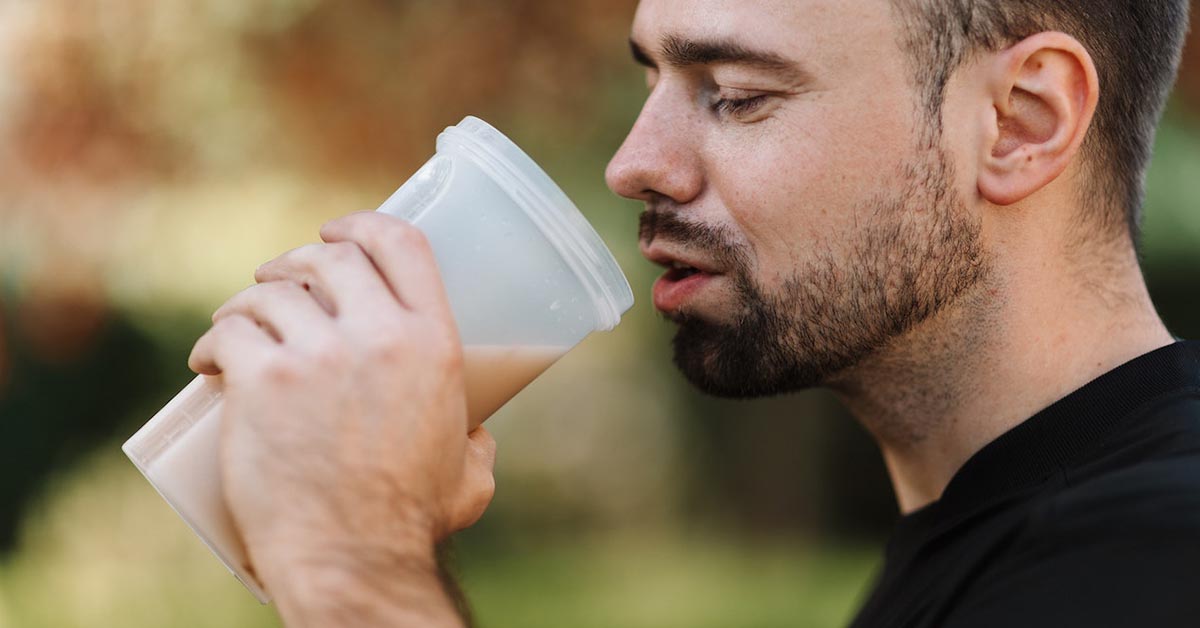
Many people are trying to add protein shakes to their diet for a quick, nutritious boost. In fact, data reveal that the number of high-protein drinks increased by 122% from 2020 to 2024.
The good news? There’s no shortage of high-quality, clean-label protein shakes in 2025. Here are the top 10 protein shakes to consider, whether you’re looking for a plant-powered blend, a whey-based protein shake, or something you can grab-and-go on busy days.
1. Optimum Nutrition 100% Gold Standard Whey

First on our list of top 10 protein shakes Optimum Nutrition 100% Gold Standard Whey in Chocolate Malt. This classic whey-based protein powder offers a blend of whey isolate, concentrate, and hydrolyzed whey. This option is also one of the most widely used and reviewed powders on the market.
Pros:
- Provides 24g of complete protein per scoop
- Easy to mix, widely available
- Good taste
Cons:
- Contains dairy (not suitable for vegans)
- Some versions use artificial flavors/sweeteners
2. Dymatize ISO100

Next, we have Dymatize ISO100 Whey Isolate (Hydrolyzed). This whey isolate + hydrolyzed whey protein powder is designed for faster absorption, lower lactose content, and leaner macro (low fat/carbs). It comes in a variety of delicious flavors, including collaborations with Dunkin’ and Pebbles cereal.
Pros:
- Easier digestion and faster absorption
- Low in fat and carbs
- Efficient protein per serving
Cons:
- More expensive compared to basic whey powders
- Still dairy-based
3. Transparent Labs 100% Grass-Fed Whey Protein Isolate

If you’re looking for a clean protein shake, you may want to consider Transparent Labs 100% Grass-Fed Whey Protein Isolate. This premium whey isolate from grass-fed cows is marketed as a “clean label” powder. That means it has minimal ingredients and transparent sourcing. No wonder it often appears in top 10 protein powder lists.
Pros:
- High protein content per serving
- Clean, minimal-ingredient formulation
- Good taste and mixability
Cons:
- More expensive than standard powders
- Still dairy-derived
4. KOS Vegan Superfood Protein Powder

If you’re on a plant-based diet or simply someone who would rather have vegan ice cream than a full-dairy one, try KOS Vegan Superfood Protein Powder. This plant-based protein powder is a popular choice for vegan or vegetarian users or those avoiding dairy. It’s also known for smoother taste among vegan powders.
Pros:
- Suitable for vegetarians, vegans, lactose-intolerant, or people avoiding dairy
- Often lighter on digestion for those sensitive to dairy or lactose
- Easy to include in shakes with other whole-food ingredients
Cons:
- Plant proteins often have fewer BCAAs than whey
- Some plant powders may have a “grittier” or “earthy” aftertaste
5. OWYN Plant-Based Protein Shake

Next on our list of top 10 protein shakes is OWYN Plant-Based Protein Shake. It’s a ready-to-drink or ready-to-mix plant-based protein shake, making it a convenient option for those on the go. Many of its options have no dairy, soy, or gluten, making it a good choice for those who have dietary restrictions. Its grab-and-go packaging also makes it convenient for busy people trying to maintain a healthy lifestyle.
Pros:
- Vegan and often allergen-friendly
- Ready-to-drink format saves time and is very useful for busy days
- Often balanced for general nutrition
Cons:
- Because it’s plant-based, one may require slightly higher intake to match whey
- Some users report “earthy” or “neutral” taste
6. Orgain Organic Vegan Protein Powder

Another plant-based protein powder on our list, Orgain Organic Vegan Protein Powder uses a blend of pea, rice, and seeds. Its ingredients list makes it a good option not only for vegans but also for lactose-free diets. If you’re looking for a protein powder that can be easily incorporated into plant-based meals, this is worth a try.
Pros:
- Suitable for vegans, vegetarians, and those with lactose intolerance
- Most variants are free from soy, gluten, and common allergens
- Flexible for mixing
Cons:
- May have lower absorption or incomplete amino-acid profiles
- Sometimes the texture or taste is less smooth than whey
7. Isopure Low Carb Whey Isolate

Also on our list is Isopure Low Carb Whey Isolate, which, according to its website, allows you to “pack in high-quality protein, without packing on the carbs.” This Whey-isolate powder low in carbs and fat, making it useful for lean-cutting diets, weight management, or those wanting lean protein with minimal extras.
Pros:
- Low-carb and low-fat
- Helps with calorie control
- Good for people trying to stay lean while meeting protein needs
Cons:
- Not suitable for vegans or lactose-intolerant
- Isolate tends to cost more than concentrate
8. NGX Bodyfuel Vegan Protein Powder

NGX Bodyfuel Vegan Protein Powder, meanwhile, takes pride in being “science-backed and plant-powered.” This vegan-friendly option doesn’t have GMOs, bulking agents, or fillers. It also has zero sugar but is still packed with flavor, making it a good option for those who want the best of both worlds.
Pros:
- 100% plant-based
- Vegan-friendly alternative to whey
- Protein content makes it competitive with many whey powders
Cons:
- Often more expensive
- Amino-acid completeness can be lower vs. whey
9. SlimFast High-Protein Shakes

Another popular item on our list is SlimFast High-Protein Shakes. These ready-to-drink protein shakes are aimed at weight management or convenience. That said, they’re extremely useful for meal replacement or supplementing dietary protein. Many reviews mention how people love these shakes’ flavor and how they help curb hunger and cravings.
Pros:
- No mixing needed
- Good for weight management or busy schedules
- Useful as quick meal
Cons:
- May have sweeteners or fillers
- Less “clean” than pure powders
10. Ghost Whey Protein Powder

Last but not least on our top 10 protein shakes list is Ghost Whey Protein Powder. This flavored whey protein powder often mentioned in “best-tasting” 2025 protein powder roundups, for those who value flavor as well as protein content.
Pros:
- High bioavailability
- Complete amino-acid profile
- Reputed for good taste and user enjoyment
Cons:
- Dairy-based, depending on flavor
- May contain artificial sweeteners or additives
There you have it! The top 10 protein shakes in 2025. Bear in mind, though, relying heavily on protein shakes isn’t the goal. While they’re convenient and effective supplements, they can’t replace the benefits of a balanced diet, proper exercise, and good-quality sleep. Think of these shakes as support and not the foundation of your overall wellness routine.
Business
Top Marketing Podcasts for 2025 You Should Be Following Today
Published
4 months agoon
October 17, 2025By
Skylar Lee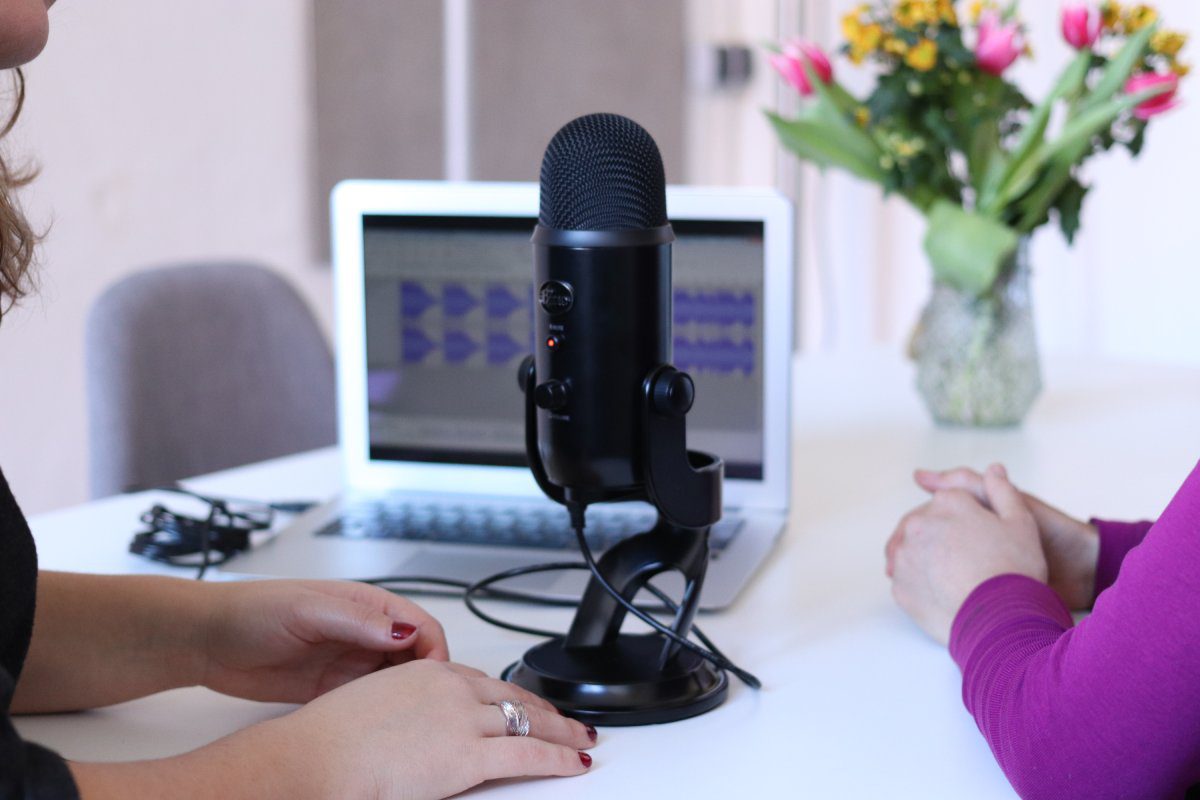
Being a marketer means constantly being on the lookout for the latest in marketing trends and news. You’ll be surprised how fast trends come and go, along with the tools that you commonly use for your campaigns. If you’re looking for a trend that never goes out of style, it’s podcasting. Here are the top marketing podcasts to tune in to in 2025:
1. Marketing School
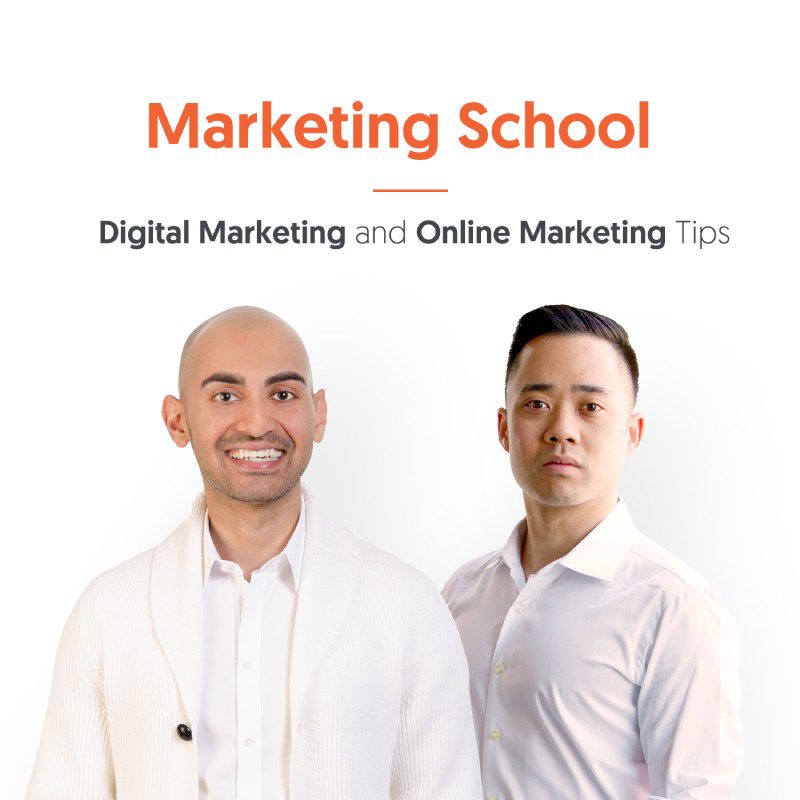
Marketing School is hosted by one of the famous names in the marketing industry: Neil Patel. Eric Siu is also another popular figure hosting the show. They update listeners on the newest marketing and SEO trends and information. Plus, they interview content creators and marketers to share their marketing secrets and tips to achieve their goals. It’s a great starter podcast for new marketers in the field. Listen to the famous hosts every day!
2. Social Media Marketing Podcast
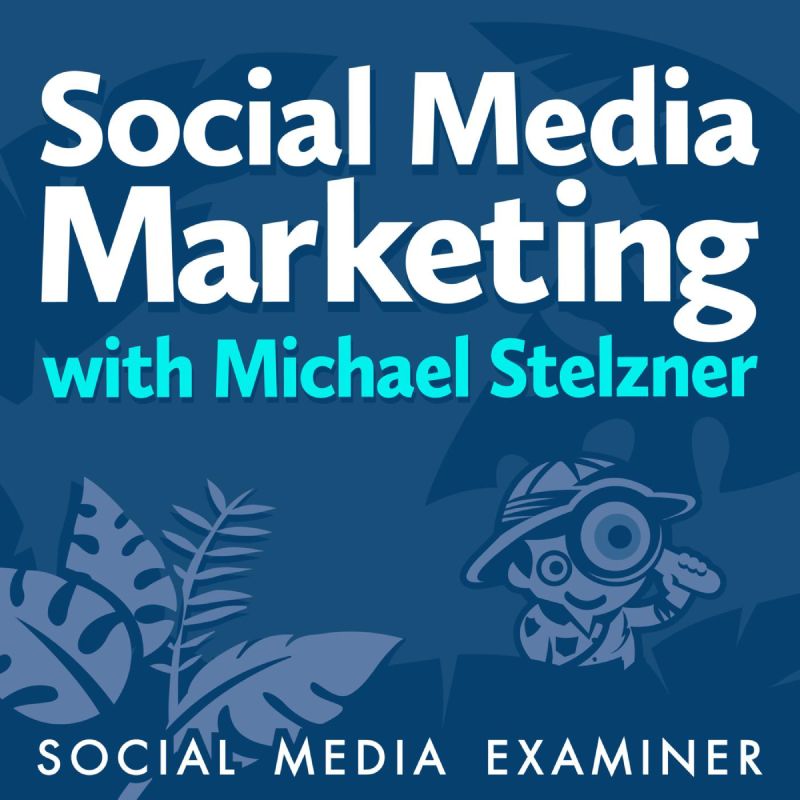
The Social Media Marketing Podcast should be your go-to podcast if you’re focused on social media marketing. Listen to Michael Stelzner weekly to get the best tips on marketing on social media with the latest tech and trends. If you’re also running out of content ideas, the podcast host also provides tips and insights to help you get started on new strategies. Plus, he interviews marketers and business leaders on how they achieved success with social media marketing.
3. The WARC Podcast
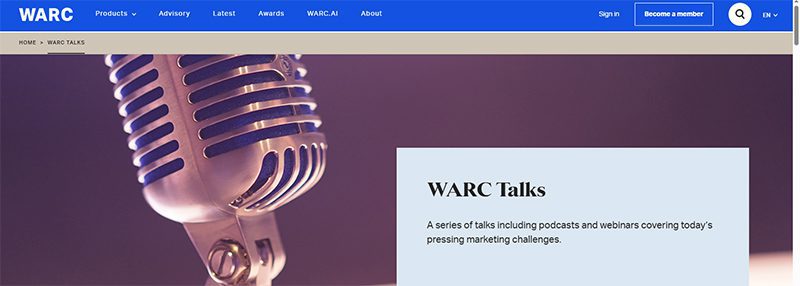
The WARC Podcast delivers marketing insights to help you know the latest in marketing for the week. You’ll learn what marketing challenges marketers overcame. Listen to them twice a week for recent trends, interviews, and event recaps.
4. Duct Tape Marketing
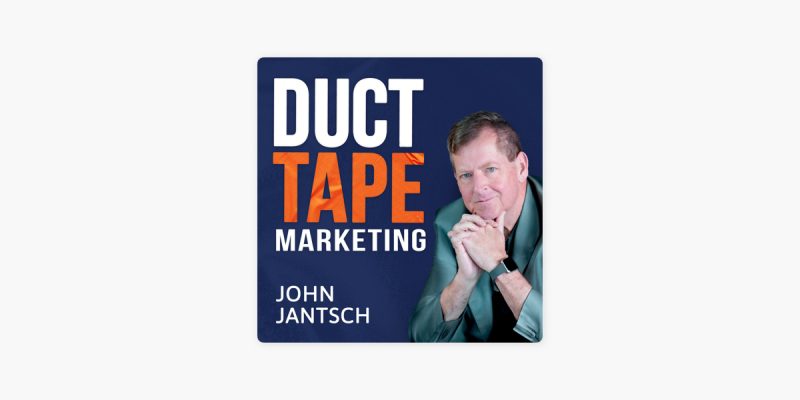
Another big name in the marketing sphere is Duct Tape Marketing, which made an impact in 2005. Listen to John Janstch three times a week to listen to interviews with small business owners and marketers, and how they grew their businesses through marketing strategies. Don’t miss out on the trends and tips to supercharge your marketing.
5. Perpetual Traffic
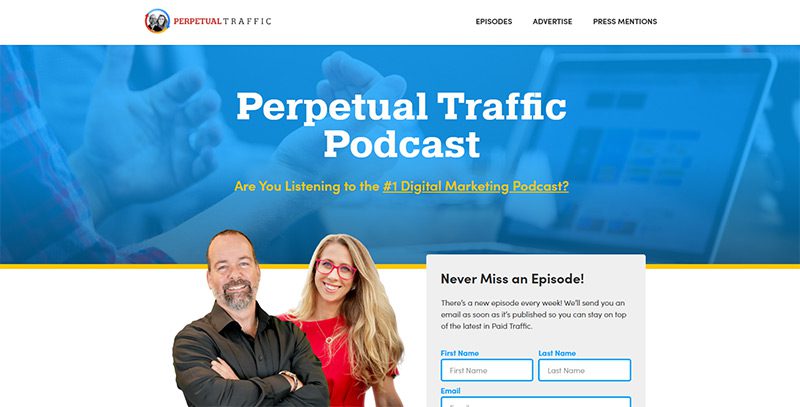
If you want tips from expert marketers Ralph Burns and Kasim Aslam, listen to Perpetual Traffic! They specialize in paid traffic tips to help you increase sales and leads! Expect interviews from various experts in different niches. You can also get insights from case studies to help you grow your business. Listen to them twice a week!
6. The Digital Marketing Podcast
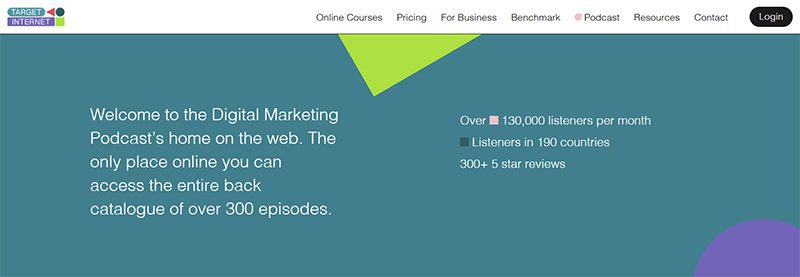
Do you want to be updated on everything digital marketing? The Digital Marketing Podcast is the best podcast to listen to. Know the latest news, updates, stats, and future of marketing. The hosts also discuss current tech trends in marketing to grow your business. Listen to the hosts twice a week!
7. The Affiliate Guy
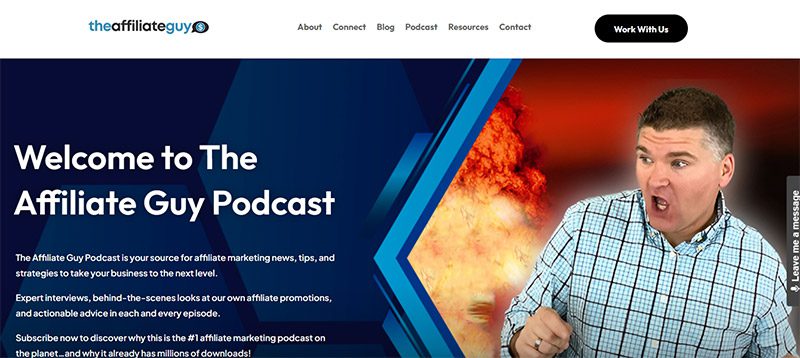
Are you an affiliate marketer and need expert advice and the latest updates on affiliate marketing? You should listen to The Affiliate Guy. Hosted by Matt McWilliams, he has trained over 320,000 affiliates.
Think of The Affiliate Guy’s podcasts as engaging audio versions of How-To blogs. Additionally, he interviews entrepreneurs and leaders. Plus, he also references case studies to help you understand how they achieved their goals.
8. Marketing Trends
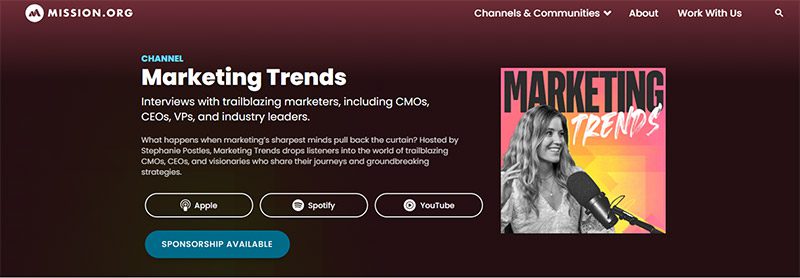
The very apt Marketing Trends podcast updates you weekly with new information and insights about marketing! You can listen to CEOs, CMOs, and other thought leaders share best practices and strategies to grow the biggest brands! Know how you can grow as a leader or an ambitious marketer when you get the latest tips for achieving success.
9. Stand The F*ck Out™
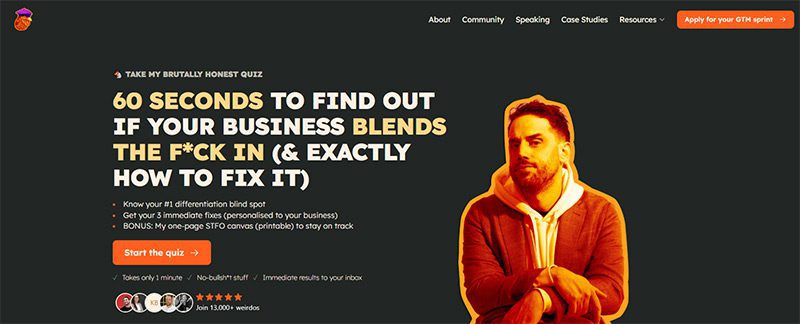
Are you tired of hearing or reading the same marketing tip or trend and don’t want to use that strategy anymore? Stand The F*ck Out™ gets straight to the point and doesn’t dilly dally when discussing marketing. Louis Grenier hosts the show and provides evergreen topics. You also get to hear from experienced marketers how their teams executed strategies and got the desired results. Listen to this podcast weekly.
10. Social Pros Podcast
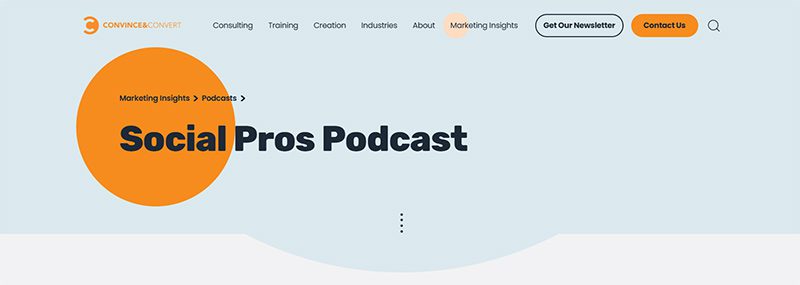
Are you interested in learning how social media marketers execute their campaigns for big brands? The Social Pros Podcast should be on your radar. Jay and Adam host the show, which you can listen to weekly. Not only do they discuss recent trends and strategies, but they also discuss team management and other personal conversations on being a marketer.
11. Marketing Over Coffee
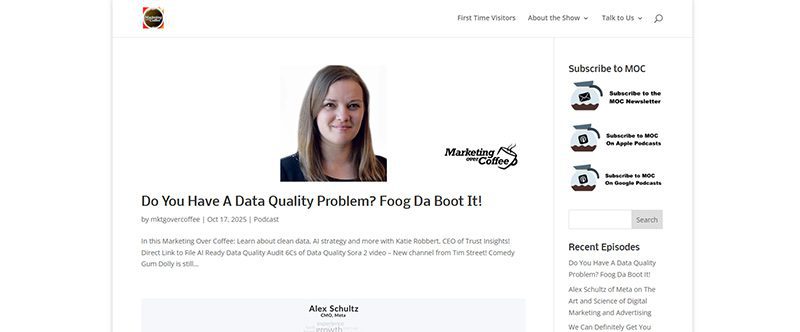
Do you prefer listening to podcasts in the morning during breakfast? Why not listen to Marketing Over Coffee on the side while enjoying a hearty morning meal? Like other podcasts, you’ll hear the latest tech trends like AI and improved marketing tools. Plus, get insights from the experts like Seth Godin, Rand Fishkin, and Ann Handley! Episodes come out weekly!
Lifestyle
What the Hell Was Magic Dirt? The Black Oxygen Organics Hoax
Published
5 months agoon
September 11, 2025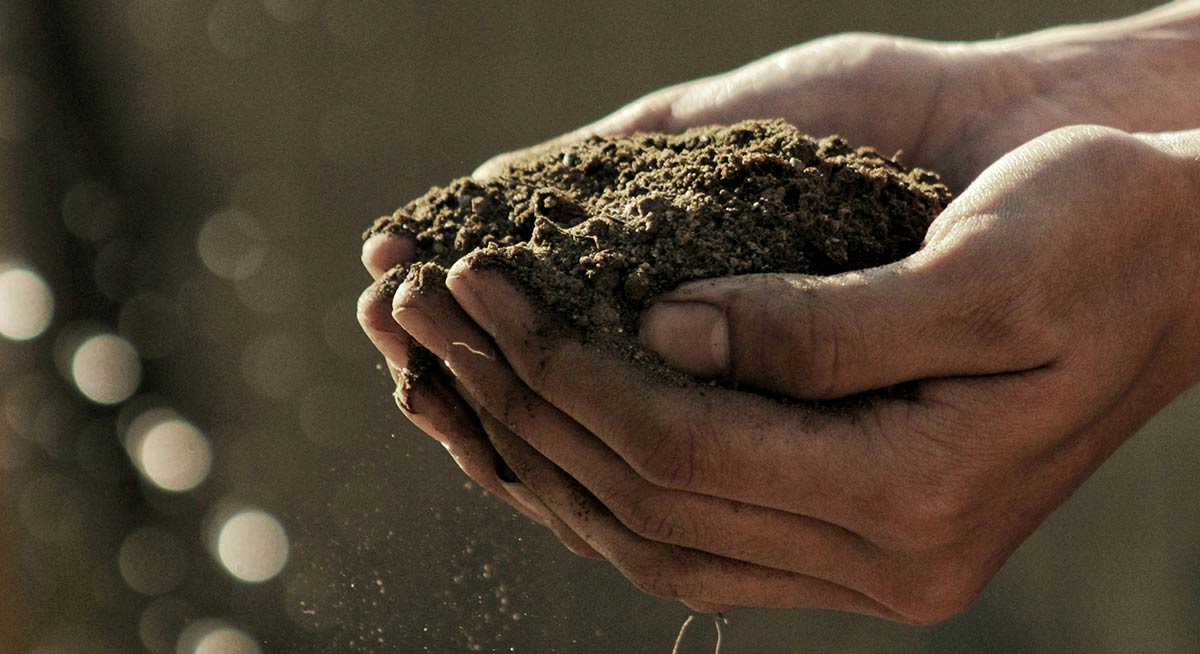
It has been years since we experienced the bizarre that was the pandemic, and yet, shady schemes still abound in the form of MLM (multilevel marketing) related to it. If you’ve ever heard or seen Magic Dirt, you’re not alone in wondering what it is all about.
While we’re now in the era of AI breakthroughs, space tourism, and wearable brain tech, some people still seem to be stuck in the horrid past. Sellers are peddling literal dirt as a miracle health product. Promoted mainly by anti-vax influencers and conspiracy circles, this dirt they call “wellness solution” was sold with pseudoscience, fear tactics, and a generous dose of misinformation.
And yes, it was an MLM. Because of course it was.
Here’s the breakdown of the Magic Dirt controversy—just one of many reasons why multi-level marketing schemes continue to be a red flag for anyone with a functioning sense of skepticism.
Planting The Seeds
It all began in May of 2021 when we were finally getting into the rhythm of our “new normal.” Of course, health was a significant topic of discussion in the media. It’s no surprise that many alternative medicines are gaining popularity on social media. It was during this month that a peculiar brand emerged on the scene. Depictions began circulating with smiling women slathering black mud on their faces, drinking jars of black liquid, and placing their babies’ feet in a tub of black water.
In the captions, they listed the numerous benefits of using this new “magic dirt.” And of course, the benefits varied from person to person. You might read one post that credits the dirt with curing her child’s low energy and constipation. Then you might scroll on to read another post claiming that it rejuvenates the skin while calming anxiety.
One thing these posts had in common was that they contained the hashtag #BOO while providing a shoutout to the company Black Oxygen Organics.
So, what does Black Oxgen Organics have to say about their “magic dirt”? As a brand, they described their product as,
“the end product and smallest particle of the decomposition of ancient, organic matter.”
Yeah, it’s purposely vague. In short, Magic Dirt is supposed to be a form of fulvic acid. This is a compound derived from the decayed plants of an Ontario peat bog. Sounds super rejuvenating, right?
To be fair, fulvic acid is shown to help with allergies and gastrointestinal function. But as with your average MLM, Black Magic Organics has exaggerated these benefits to the tenth power. They’ve taken these benefits and used them to sell 4.5 ounces of literal dirt, sealed in a fancy black bag and stamped with a $110 price tag. And if that didn’t feel like a slap in the face already, this stuff didn’t even come with free shipping!
Magic Dirt is claimed to be safe for anyone of any age. This includes your children and your pets. It’s been said to help heart health, brain function, and pretty much every common health problem in the world.
Of course, with it being 2021 and all, it started getting sent around to anti-vax and COVID-sceptical groups. Instead of seeking treatment for a deadly virus, people were mixing mud into their smoothies and calling it a day.
The Immediate Downfall
As Instagrammers and TikTokers promoted this “cure-all” product, an alarming number of women were eager to become direct sellers. For many, this company was their first introduction to the notorious Multi-Level-Marketing schemes.
That is, until the professionals got involved. You see, Magic Dirt was not at all FDA approved. And when health regulators from the U.S. and Canada became aware of its popularity, they conducted an investigation. They called for multiple product holds at the border, which in turn gave rise to an army of online skeptics.
And in typical MLM fashion, Black Oxygen Organics took their money and ran for the hills. Only about six months after its initial success, the company announced that it was officially shutting down. This sparked a significant backlash from online sellers. They grieved the end of miracle supplements, while also petitioning to recover the thousands they had invested in direct selling.
Unfortunately, most victims of these schemes will likely never recover their money.
The fact of the matter is that Black Oxygen Organics and similar companies are based on a scam. Period. That’s what everyone needs to remember, so they can avoid making the same mistakes as so many others. Always be vigilant for predatory companies.

5 Quiet Operational Leaks Costing Fortune 500s Millions

The Biggest Hidden Cost in Healthcare Isn’t Staff Time. It’s Operational Friction.

5 Things Even Fortune 500 Companies Quietly Waste Money On

The Biggest Hidden SaaS Cost Isn’t Ads—It’s Post-Click Execution

Top 10 Artificial Intelligence Solutions Your Business SHOULD Use

OpenStudio – Business Management All-In-One

What’s the best logo design agency in Los Angeles?

How to Determine Which Social Network Is Right For Your Business

Know These Logo Statistics and Facts to Grow Your Business

How To Do Business Marketing For Free

OpenStudio – Business Management All-In-One

Top 10 Artificial Intelligence Solutions Your Business SHOULD Use

Here’s How You Can Scale Your Business Beyond a 7-Figure Revenue

What’s the Best Design Agency in Las Vegas?
Trending
- Technology5 days ago
Top 10 Artificial Intelligence Solutions Your Business SHOULD Use
- People2 days ago
The Biggest Hidden Cost in Healthcare Isn’t Staff Time. It’s Operational Friction.
- Uncategorized2 days ago
The Biggest Hidden SaaS Cost Isn’t Ads—It’s Post-Click Execution
- Business2 days ago
5 Quiet Operational Leaks Costing Fortune 500s Millions
- Business2 days ago
5 Things Even Fortune 500 Companies Quietly Waste Money On





